Billy Walters is one of the most successful gamblers in American history. He was one of the first to use computer analysis for sports betting in the 80s. According to legend, since then he had only one losing month.
In 2017, Bill was sentenced to five years in prison and fined $10 million for insider trading. Walters spent 30 months in prison, during the pandemic he was transferred to house arrest, and was soon released.
“Looks like Trump pardoned my old buddy Billy Walters,” Doyle Brunson wrote at the time . – I think everything is clear here according to the law, because he was forced to do what he sat down for.
In our materials, Walters is mentioned only twice in the texts about Haralabos Voulgaris.
Another key member of the Computer Group, Billy Walters, is still in the ranks, but prefers to provide advisory services to mathematicians who develop complex models to predict results. Walters, Kent and their comrades remained the sole leaders of the privateer market almost until the end of the 90s, but then the increased power and low cost of personal computers, along with the availability of statistical information, made it possible for everyone to do mathematical modeling.
A few months ago, when Voulgaris was talking to twitter readers, he was asked.
Will you read Bill Walters' book when it comes out?
– Certainly.
Walters' autobiography went on sale this month.
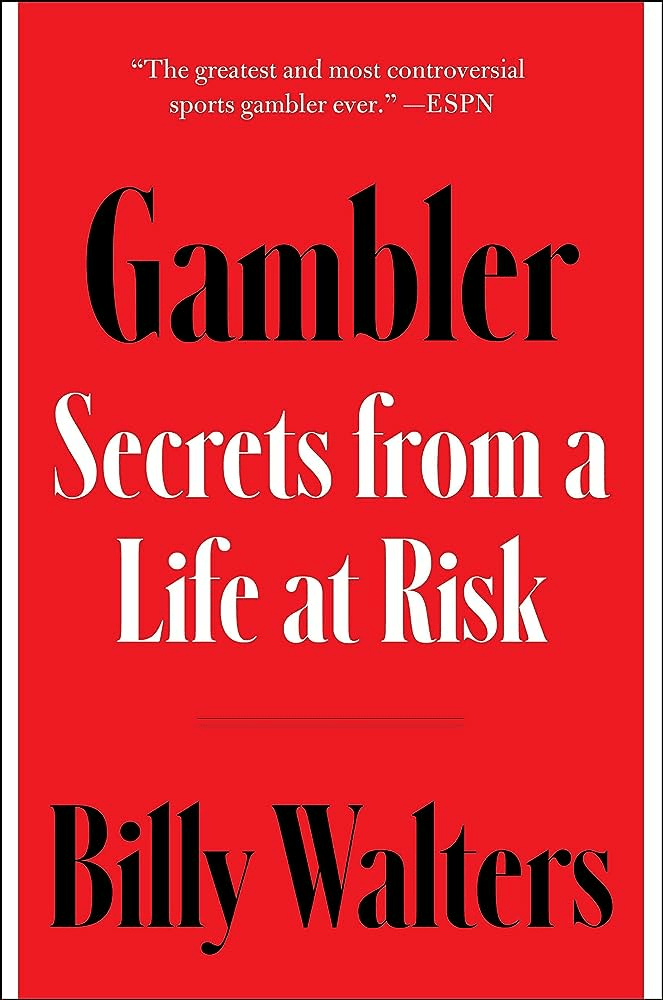
These days, Bill is a frequent guest on various shows and has given several great interviews. We translated his conversation with the host of the site No Laying Up (the main topic is golf, but there are also materials about other sports and cultural events in the United States).
Hi Billy, your book caused a huge buzz even before it was released. Tell us why you decided to write it at all?
– There were many reasons. I faced gambling addiction in my youth, then I had many other difficulties. I hope my story helps someone and teaches something. I started betting on sports very early, at that time this type of activity had a dubious reputation. We were not distinguished from bookmakers, and some even compared with criminals. Fortunately, gambling is now legal in almost all of America.
10 years ago, I would not have shared such information even for $30 million. But I am not getting any younger, I wanted to share my story with sports fans. I can say that I see my legacy in this.
It was also important for me to tell my version of events about my imprisonment. Because not a word of truth was written about it in the press.
Here is my main motivation, in a nutshell. Money definitely stood in last place, all profits from the book will go to charity.
– You can write several books about your life, but try to tell in a nutshell how you got acquainted with the world of gambling.
– I was born in a small town in Kentucky, I lost my father early, and my mother left us. I was raised by my grandmother, and I am grateful to her for everything. The first place I remember outside of my home was a Baptist church, where she and I went at least three times a week. At the same time, my grandmother worked constantly, and there was no kindergarten in our city at all, so I often stayed with my uncle. His favorite place was the billiard room, and already at the age of four, I played pool quite well. Coke boxes were placed for me and a cue was given in my hands. And so my childhood passed – between the Baptist church and the billiard hall. Pool is a great school of life. For the first time, I played for money at the age of six, where I learned to communicate with people and negotiate. Unfortunately, I learned too early about the betrayal of friends. Now I am 77 years old, but I hope I managed to follow the principles that I learned during those years. I'm sure I formed as a person then.
– In the world of gambling, you are famous for your successful career. But from the biography, I learned that your path was not so cloudless. You have repeatedly won and lost seven figures.
There is nothing unusual about this. All major gamblers have gone through this to one degree or another. I went bankrupt probably 100 times. I won on bets, then I lost everything at blackjack. Ludomania was a serious problem. For a while, I couldn’t control myself at all, it was as if another person made all the decisions for me. There were many problems and pains. But, as I said, I got into the world of gambling as a child and was never afraid to take risks. This has its pros and cons.
They say smart people don't repeat their mistakes. It's definitely not about me. But then certain events took place that helped me move from the category of frank gamblers to successful gamblers. One of them was the marriage to an amazing woman, with whom we have been together for 47 years. All this is detailed in the book. I think anyone who reads it will be convinced that there is not a drop of falsehood. In general, I like autobiographies most of all just for their sincerity.
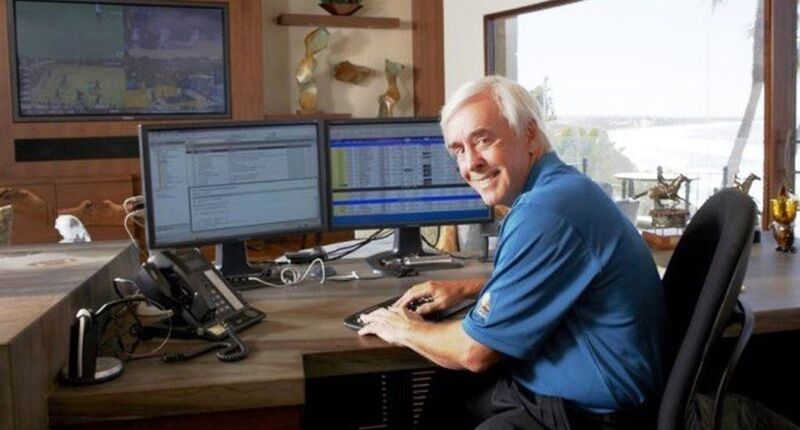
– Now you can find detailed statistics and analytics for any sport right on your phone. Tell us how you collected information in those distant years.
I was arrested in Kentucky for bookmaking. I was well aware that I was engaged in illegal business, so I was ready. Fortunately, the matter did not go to prison, but the record remained in my file. In 1982, I moved to Las Vegas to become a professional gambler. This is the second best event in my life after marrying Susan. In Vegas, I met a guy named Mike Kent and noticed that his predictions were much more accurate than mine.
An excerpt from the ESPN article we mentioned above:
The first computer program for modeling sports events appeared in the late 70s. Michael Kent, a nuclear submarine engineer who worked for the Pentagon, wrote it to predict the results of NFL matches, as well as collegiate football and basketball leagues. He fed the algorithm, written on punched cards, to a rented computer, the power of which was less than that of modern laptops. But the bookmakers, for their part, were armed only with calculators and intuition. The forces were unequal. Kent moved to Las Vegas, created a syndicate – the legendary Computer Group – and won millions of dollars. He retired seven years ago, his current location is carefully hidden. According to his lawyer Stephen Brooks, he lives as a recluse.
I counted everything on a piece of paper, and even then he used a computer, while he did not understand anything about the bets themselves. And the betting strategy is just as important as the ability to predict the outcome. Mike and I joined forces, he found profitable events, and I dealt directly with rates. Over time, a whole team began to work for us, which made bets throughout the country. We began to earn a lot, and we were quickly noticed by law enforcement agencies. They did not encounter anything like this, so they decided that we were connected with crime and illegal bookmakers. Trouble began back in 1985, but then everything was limited to searches. In 1992, we were accused of illegal bookmaking, which resulted in me, my wife, and 14 others appearing in federal court. Fortunately, we were acquitted. Proved to the jury that we were betting – which was perfectly legal – and nothing more. It's funny that the case was considered in Nevada – the gambling capital of the world.
Back in the 80s, I realized that Mike's main advantage was the ability to work with information. But every year it became more and more accessible. To stay afloat, the efforts of Mike alone were no longer enough. I started to recruit other forecasters to the team and at some point collaborated with 25 of the strongest privateers in the world. It's sad to admit, but over time they all lost their edge. Someone did not keep up with the progress, someone lost interest in the matter or simply lost their grip.
– Making bets was also not an easy task, you had a whole team here too, right?
– Yes, I myself could not bet everywhere. Already in the 80s, there were smart bookmakers and not so smart ones. The first ones analyzed the bets of profitable players, worked with information, and made adjustments in the line in order to earn more themselves. The latter did not change anything and simply stopped accepting bets from those who were considered dangerous. So we continued to bet through figureheads.
People who are able to consistently win – I'm not talking about any second division of the championship of Australia, but about really big markets – NFL, golf, college basketball, and so on – are much less than 1%. If you are afraid to take bets on these sports, then something is wrong with your business, and you are simply not a very good bookmaker. Let me tell you a story about this. In 1989, my closest friend, Jack Binion, started the Horseshoe Sportsbook. I immediately told him: “Jack, I don’t want to deceive you. If you don't, my people won't bet with you." He replied: “Are you laughing? I want you to put me first!” We bet $25,000 on college basketball and $50,000 on American football. In its first year, Horseshoe Sportsbook became Nevada's most successful bookmaker. At MGM when Jay Rude was in charge, I have been betting $50-100k per match for years. After our bets, they just changed the line and printed money on it.
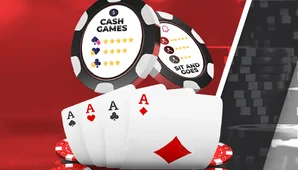
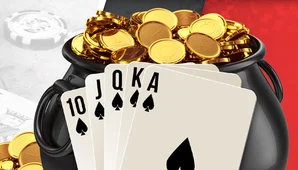
– How did you place your bets?
– I have always been interested only in big wins, and for this, you need to make big bets. Ordinary people have an erroneous opinion that you can put a lot of money into sports at any time. In reality, everything is completely different, especially when you are consistently profitable and the bookmakers see you as a danger. I had to open accounts in different parts of the world, mainly the USA and Europe.
Over time, I noticed another feature. Bookmakers began to ban not only winning players but also those who made a lot of bets and influenced the line, while the result did not matter. In 2016, when I retired from betting due to criminal prosecution, we had an office in Panama with access to 1,600 betting accounts. Some offices had several accounts. I will try to explain the essence of our work in a simplified way. I used certain accounts for trial bets. That is, I did not make 30-40 bets per week, but 3-4. If two out of three bets came in, and the line changed in our direction, I marked such an account as a “red flag”. It was temporarily impossible to continue betting from him. We might even have deliberately made a few negative bets.
If the trial bets were unsuccessful, the account fell into the "green" or "yellow" category, and the next week we loaded from them to the maximum. Our goal was to keep the ability to bet maximum amounts as long as possible. And such juggling with accounts took even more time and effort than finding profitable rates.
– Tell us about your acquaintance with Phil Mickelson and his role in your business.
We met in 2006 during a friendly golf game. Naturally, I knew who he was and immediately said that I was his longtime fan. It turned out that Phil had heard about me too. The whole game we chatted only about sports. Then we didn’t communicate for a couple of years and met again in 2008 at the next golf tournament. Phil himself approached me, said that he was aware of what I was doing, and offered to cooperate. It went on for about five years. Obviously, his betting limits were incomparable to mine. Phil started betting on sports back in 1995 and has lost more than $100 million on bets all the time, he himself confirmed this information publicly. There was a period when gambling clearly got the better of him. On the other hand, this is his own business, he earned $ 50 million a year and could afford it.
Our arrangements were simple, we bet in equal shares, he made bets, and we did all the analysis and preparation. The cooperation was successful and over time his accounts were closed. He found several abandoned accounts from the 90s that he had not used for a long time. This extended our cooperation for some time, but at the same time, it was the beginning of the end. He owed money to his old betting partners, and one of his transfers was flagged by the bank as a suspicious transaction. This led to an investigation into money laundering schemes. All this also affected me and led to the case of inside trading, for which I ended up in jail. According to the investigation, Phil was one of those with whom I shared classified information. During interrogation by the FBI, he denied all this. He promised to confirm this version in court, I'm sure his testimony would be enough for me to avoid imprisonment.
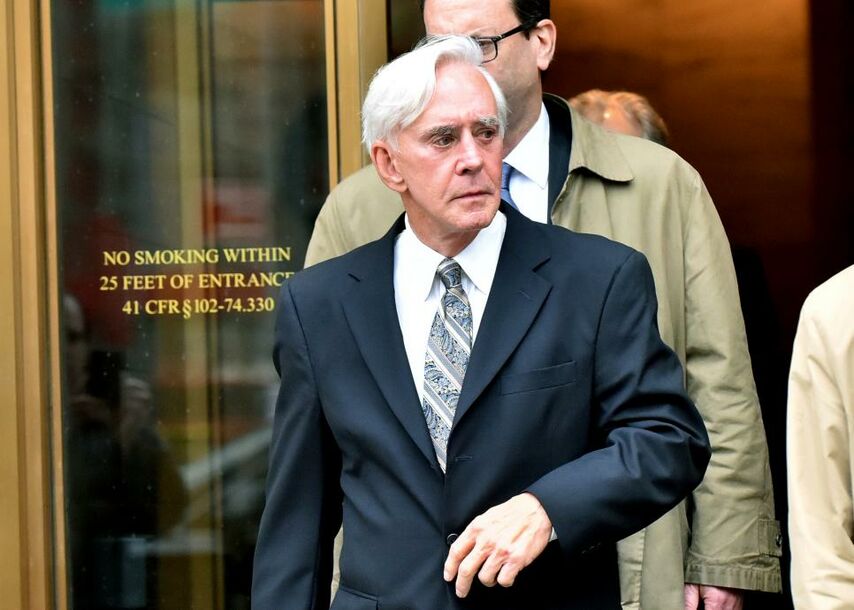
– In the book, you say that in 2012, Phil wanted to bet $400,000 on the US team in the Ryder Cup through you (reasons, could not put directly). What was your first reaction?
– I couldn't believe my ears. We had known each other for several years, but the topic of golf betting was not even brought up. I cursed him and asked: “Did you forget what happened to Pete Rose ( ed. – the legendary baseball player, after the end of his playing career, when Rose worked as a manager, it turned out that he was betting on baseball matches, including against his team. Pete has been banned from professional baseball for life. Said I didn't want to have anything to do with it. I think it was an emotional impulse on his part, and he never made a bet. At least we haven't discussed golf bets since then. If I agreed, and it would ever become public, his life and career would be ruined.
Do you remember your last meeting? In the book, you say that he had a large debt to you, then this strange episode with the refusal to testify in court.
I spent 31 months in prison, during which time my daughter committed suicide. I'm sure it wouldn't have happened if I were there. I don't think I'll ever be able to forgive him.
Did he try to contact you after prison?
– Came up once on the golf course. He tried to somehow justify himself for not speaking at the trial. I did not listen to him, only told him about my daughter. He replied that he was sorry. We didn't communicate anymore.
We have only discussed a small part of the stories in your book. So I advise everyone to read it. But I can't help but ask about roulette, how did you manage to find an edge there?
It was in the 80s in Las Vegas. Two guys came up to me, they said that they have a 100% system to play in the black. I offered to give them money and divide the profit in half. Naturally, I sent them. But they piqued my interest in this game. With the help of a computer, we began to analyze the algorithms by which numbers fall out. We found out that 100% random ones do not exist at all, but in most cases, the error was too small. It still did not make sense to play. However, there were a few roulettes with a decent expectation. My theory was confirmed, and I managed to win a lot until all the casinos changed the supplier.













